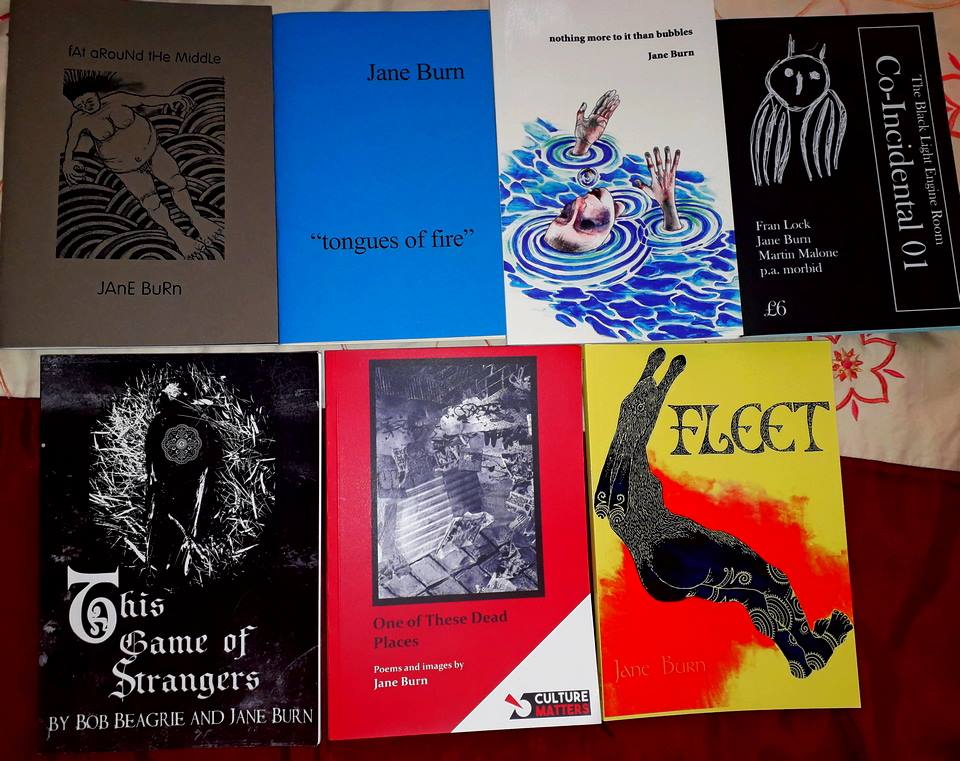
JANE BURN – POETRY AS HARD GRAFT, INSPIRATION, REACTION OR EXPERIMENT?
I interviewed poet & artist Jane Burn who won the Michael Marks Environmental Poet of the Year 2023-24 with A Thousand Miles from the Sea.
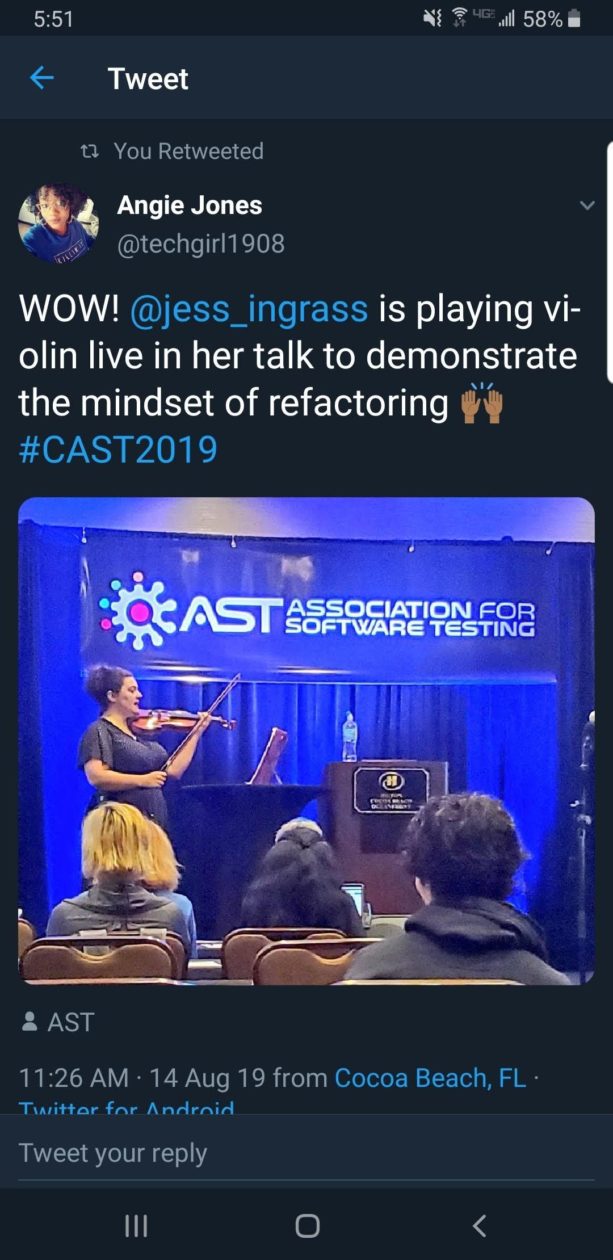
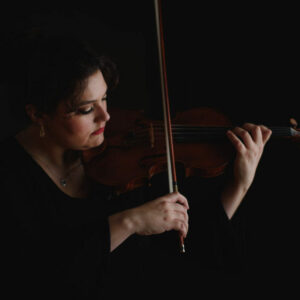
I interviewed writer, speaker, musician and software expert Jess Ingrassellino about her self-taught skills, her thirst for knowledge, and how creativity has helped her link up the various fields she works in. Jess says, about herself: “I am open to new conversations and new experiences, as I am still writing my story, and it is writing me.”
Leslie: Can you give a brief overview of your activities, please, highlighting the common themes?
Jess: I started my professional life as a private violin teacher when I was 19. It’s how I put myself through college. I grew up in poverty, and had no support of any kind, financial or otherwise, from my family after I left home at 17. So, I took any jobs I could find, including waitressing, teaching piano, even teaching English grammar. I started working in software about eight years ago, and I used coursera and edX (online learning platforms) to teach myself Python and Ruby, so I could write software testing code. When I first started in software testing, I would have Chief Technology Officers and even CEOs asking me how I made the switch from music to software – they thought the two were really different. Actually, software testing and learning music have many parallels. Currently, I work as a Director of Quality Engineering. I also teach python, software testing, and music. In my non-working time, I write and study poetry and creative non-fiction.
I think the common thread among everything I do is the potential for exploration and creativity. Whether it’s writing code, playing violin, or writing a poem, there’s an opportunity to engage with a rich and varied repertoire of work, and to solve problems in unique ways. There’s rarely one, correct answer, and that’s exciting to me.
Leslie: Are there particular skills and aptitudes needed to be effective in the software industry?
Jess: Yes! Whenever I am teaching kids to code for the first time, I ask their parents about their frustration tolerance and their curiosity. Being in the software world requires the ability to encounter problems and look for solutions, whether it’s a google search for an answer, asking a question, or experimentation. The software industry requires people to find novel solutions to existing problems. In addition to tolerating and working through frustration, the ability to collaborate and improvise to experiment with solutions is also helpful.
Leslie: How did you learn your skills and what do they show about you and your temperament/education that you did so?
Jess: I learned my music skills in a public school music program until I was in college, where I started studying seriously and taking private instruction. I’m an unusual case, in that I received my doctorate in music education, but did not study violin privately as a child. This late start meant I had to put in a ton of extra work, and focused work, to catch up with my peers. I was taught by several excellent teachers in my high school years (when I was 16/17) who focused on teaching us how to learn, rather than focusing on rote memorization. I am a tenacious and determined person, and I enjoy anything that challenges me.
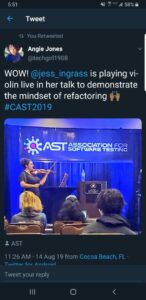
I put similar skills to work when learning technology/software. Learning how to learn, being willing to ask questions and experiment, and having a generally tenacious inner being helped me forward as I learned technical skills.
Leslie: What skills and aptitudes do you draw on to play violin and viola in classical orchestras?
Jess: Working full time and playing in orchestras is a challenge because of the demands of my job. I rely on my ability to focus in on problem areas of the music and then apply multiple strategies to work through those problem areas. Also, I have to keep up my basic skills, so to speak. It’s a bit like keeping your vehicle well-maintained. As a person with some disabilities, planning effectively so I can practice well and learn my music in limited time is crucial.
Leslie: How do you work on writing and/or art? What methods do you use to keep your vision fresh and to learn the skills necessary?
Jess: I’ve always been a lower-case-w ‘writer’ – I started my first journal when I was seven, after reading The Diary of Anne Frank. Once I turned ten, I started journaling daily, and have most days since. I found that writing helped me to resolve a lot of the issues I was dealing with in my home. There was a lot of violence between my parents, and directed toward my siblings and me, so writing is where I turned to express and explore my feelings.
A few years back, I decided I wanted to explore becoming an upper-case-W ‘Writer’, so I explored classes around my area. I’ve taken three classes at The Writers Studio in NYC. The classes have helped me learn how to read and experience poetry and creative non-fiction in an entirely new way. Working through the classes and assignments has helped me find and hone my voice as a writer. No matter how ‘expert’ someone is at a subject, I think that taking a class can help keep things fresh. From time to time, I take a violin or viola lesson as well. Again, it’s gaining the perspective of another expert. I read the work of poets across time and place, diverse in their views and experiences. One doesn’t need to agree completely with the teacher, or to be in love with the work they are reading, but exploring multiple viewpoints allows for a more nuanced approach to one’s own work, whether it’s interpreting music or poetry.
Leslie: Can you explain what you mean in practice by ‘Communities of Practice’ and their advantages and disadvantages.
Jess: A ‘Community of Practice‘ is, in the most general sense, a group of people who get together to learn something over time based on a common interest to learn something. Inherently, this can be good. The advantages include having accountability partners in learning or exploring a new topic, and sharing knowledge among members of the group with different skills, interests, and abilities.
While having a shared learning community is a recommended practice, I have observed serious problems within these communities. One of the bigger disadvantages I have observed is that, at times, the community adopts one idea of what is ‘right’, and the group becomes rooted in the ‘right’ idea, rejecting any challenges to what they deem the ‘right’ practice. When this happens, I don’t think the community of practice is functioning in the capacity of learning and exploration any longer. Reinforcing dogma becomes the key goal, and the community becomes an echo-chamber.
That said, people who engage in communities of practice can keep them from becoming insular simply by raising opposing views and challenging accepted norms, in order to keep the group fresh, generate new ideas, and continue to push the skill level and critical thinking of the group as a whole.
Leslie: What have you discovered about music in the classroom from practice as well as your thesis?
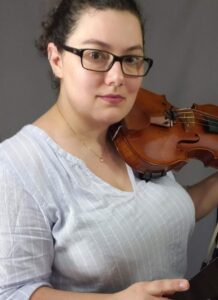
Jess: It’s a fascinating thing to watch someone sit down and play an instrument for the first time. My thesis observed teachers in their classrooms, and focused on the act of formative assessment in the classroom. The truth is, most of us operate with formative assessment all of the time. We are in a situation, we make a judgement, we take an action based on that judgement, we decide if we liked the results, and the cycle repeats. I watched some teachers who would have sixty or so such interactions with students in two minutes, which was incredible to me. These micro-interactions would likely go unnoticed, even by the informed observer, as they are maybe 1-2 seconds, and seem not to be valuable – something like “place your first finger between the frets”, etc.
The most valuable learning I took from doing that research is that feedback matters. People in the educational community freak out about assessment, but I suspect it’s because the real assessment moments, like the ones I observed, are very difficult or time-consuming to measure, so they frequently go unnoticed. Yet, that frequent, formative feedback is the feedback that inspires continued learning.
Leslie: What are the limits of technology/software and where can it go that the unaided human imagination can’t reach?
Jess: This is interesting to think about. I see the boundaries between the things that only humans can do and the things can only machines can do blurring every day. One of the limits I see in technology, still, is the ability to operate in ‘gray’ spaces. Algorithms can be trained to ‘react’ based on given input and feedback, but humans don’t operate quite so reliably. Give the same experience to ten different people, and those people will likely react differently, given the sum of all the previous experiences they have had. We’ve seen in fatal accidents of self-driving cars, too, that machines are not yet able to make judgements when a situation is unclear, in the way that humans can.
That said, technology helps us learn and imagine space, the deep sea, and other places that we could only speculate about in the past. Technologies help assist people in thinking about ‘but what if?’ whether it’s through enabling disabled persons the opportunity to work and create (I have disabilities and use assistive technologies), or enabling creatives to explore music, art, games, or other modes of expression that go beyond what they can do on their own.
I view technology as a means of facilitating and expanding the human experience. It’s certainly a fascinating time to be alive.
Next week I interview prize-winning graphic novelists, Sandra Marrs and John Chalmers, who are Metaphrog,
ABOUT LESLIE TATE’S BOOKS:

I interviewed poet & artist Jane Burn who won the Michael Marks Environmental Poet of the Year 2023-24 with A Thousand Miles from the Sea.
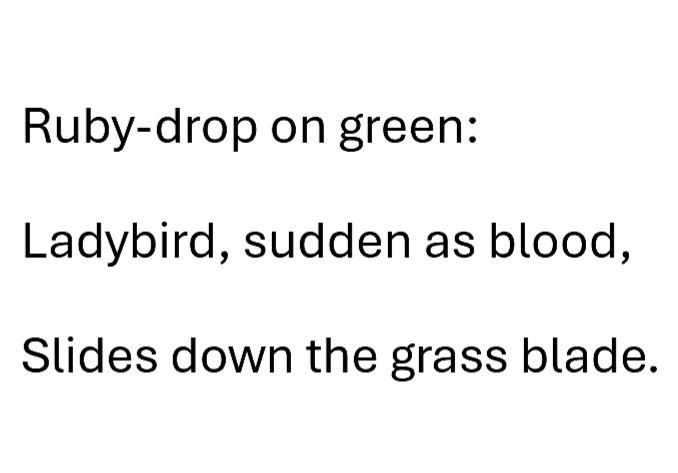
I interviewed ex-broadcaster and poet Polly Oliver about oral and visual poetry, her compositional methods, and learning the Welsh language. Polly says, “I absolutely love
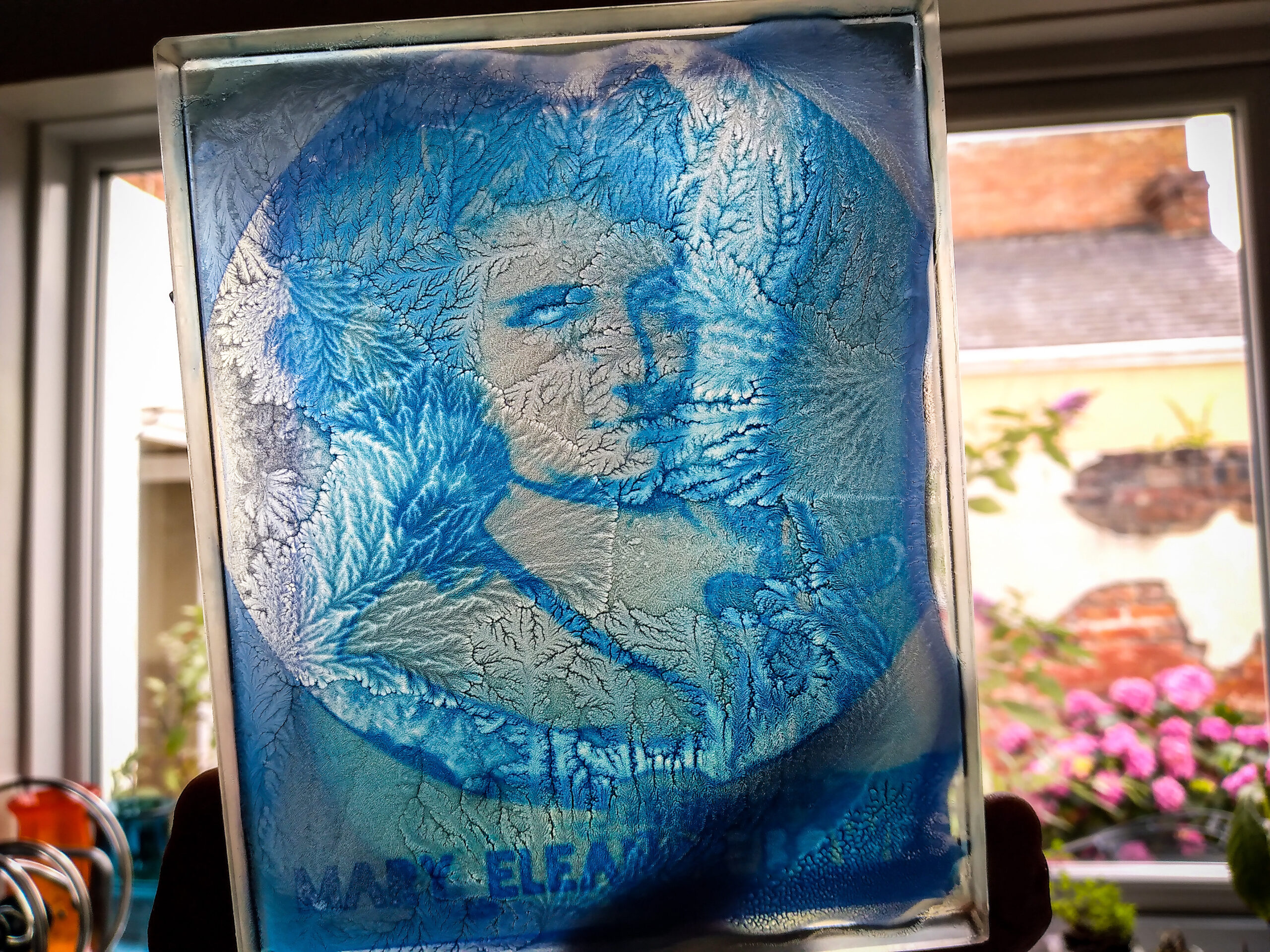
I interviewed Jo Howell who says about herself: “I’ve been a professional photographic artist since I left Uni in 2009. I am a cyanotype specialist.
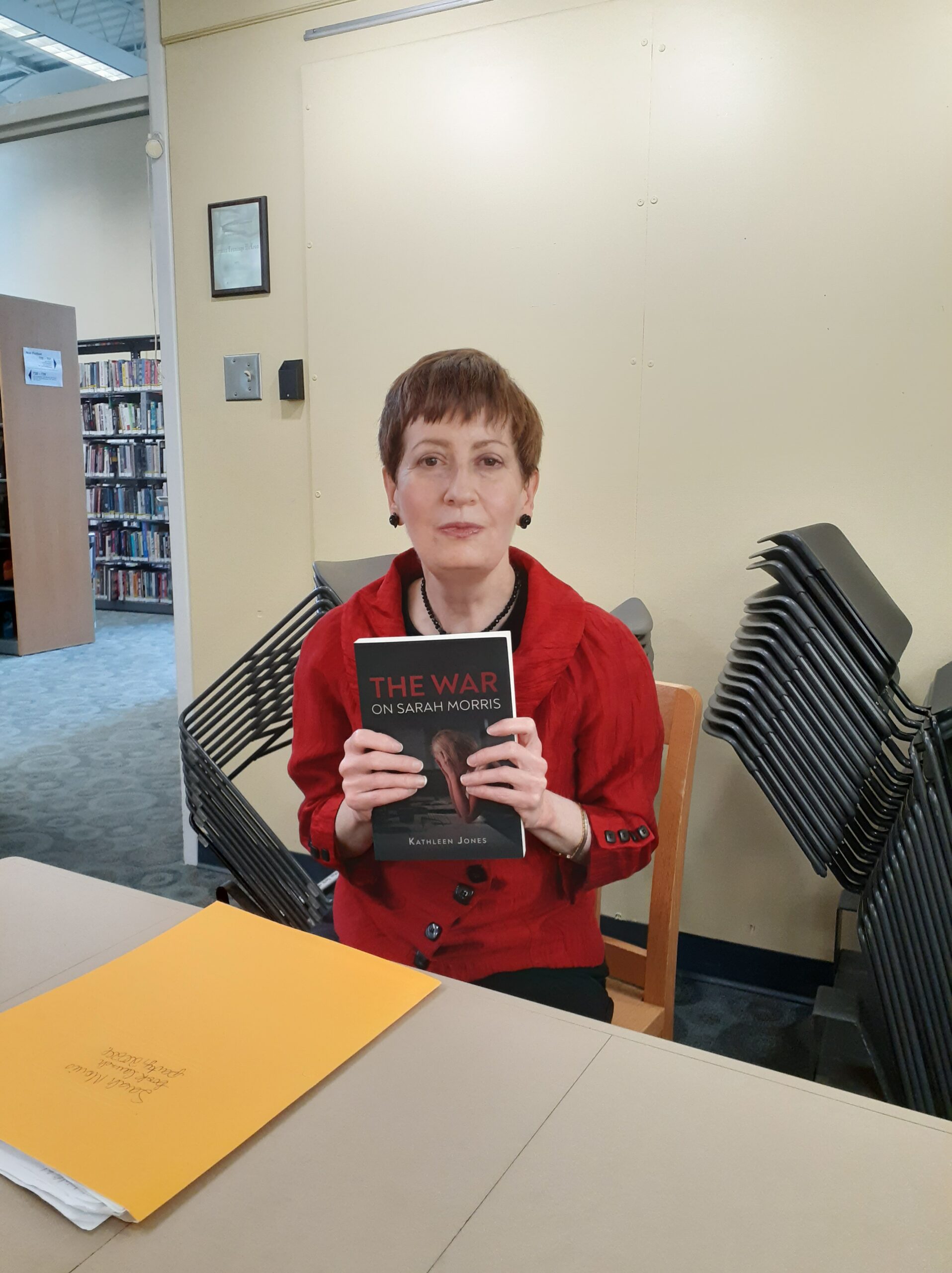
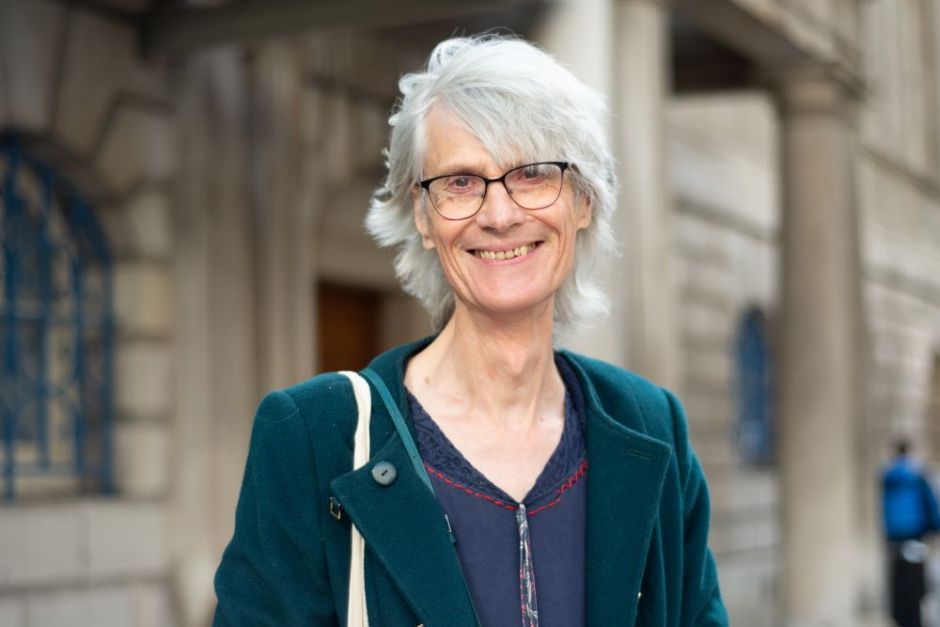
Poet Tracey Rhys, writer of Teaching a Bird to Sing and winner of the Poetry Archive’s video competition reviews Ways To Be Equally Human. Tracey,
| Cookie | Duration | Description |
|---|---|---|
| cookielawinfo-checkbox-analytics | 11 months | This cookie is set by GDPR Cookie Consent plugin. The cookie is used to store the user consent for the cookies in the category "Analytics". |
| cookielawinfo-checkbox-functional | 11 months | The cookie is set by GDPR cookie consent to record the user consent for the cookies in the category "Functional". |
| cookielawinfo-checkbox-necessary | 11 months | This cookie is set by GDPR Cookie Consent plugin. The cookies is used to store the user consent for the cookies in the category "Necessary". |
| cookielawinfo-checkbox-others | 11 months | This cookie is set by GDPR Cookie Consent plugin. The cookie is used to store the user consent for the cookies in the category "Other. |
| cookielawinfo-checkbox-performance | 11 months | This cookie is set by GDPR Cookie Consent plugin. The cookie is used to store the user consent for the cookies in the category "Performance". |
| viewed_cookie_policy | 11 months | The cookie is set by the GDPR Cookie Consent plugin and is used to store whether or not user has consented to the use of cookies. It does not store any personal data. |